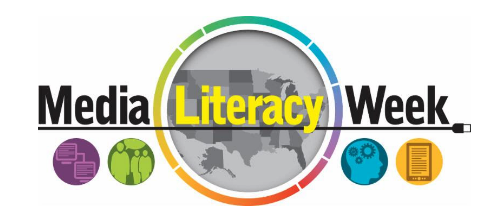 Media Literacy Week is an annual event and, this year, it comes at a perfect time as millions of Americans are preparing to make some very important decisions as to who will lead our country, our states and our communities. Much of what we know about the candidates and issues comes from media, whether from professional news sources or social media. But knowing how to understand, process, act on and contribute to media is essential for making good decisions.
Media Literacy Week is an annual event and, this year, it comes at a perfect time as millions of Americans are preparing to make some very important decisions as to who will lead our country, our states and our communities. Much of what we know about the candidates and issues comes from media, whether from professional news sources or social media. But knowing how to understand, process, act on and contribute to media is essential for making good decisions.
National Media Literacy Week, coordinated by the National Association for Media Literacy Education (NAMLE), “is designed to bring attention and visibility to media literacy education in the United States.” according to its organizers. It was Inspired by Canada’s Media Literacy Week now in its 11thyear.
During the week, the group will showcase the work of media literacy educators and organizations and promote good media education not only for kids but for everyone.
Although media literacy encompasses a wide range of concerns, including what you post and how you behave on social media, it’s an opportunity for me to raise my pet peeve, which is the importance of understanding the difference between fact, fiction and opinion and, as I point our in this blog post, not using social media to pass on false information.
Listen to Larry’s one-minute CBS News Tech Talk segment on Media Literacy Week
Listen to Larry’s conversation with Michelle Ciulla Lipkin on issues covered in this post plus the need for media education